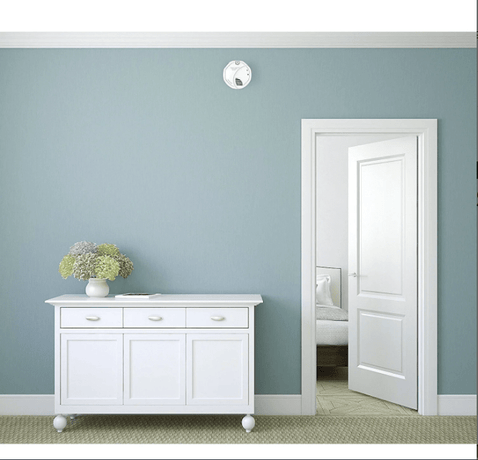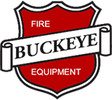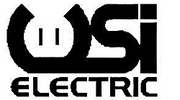- No products in the cart.
Home Smoke Detectors: What You Need to Know to Protect Your Property
23
Feb
Home smoke detectors are a safety essential. These devices are designed to alert you when there’s fire, smoke, or carbon monoxide inside your home. If you’re wondering, “Do I need a smoke detector?” the answer is yes.
Simply put, smoke detectors save lives.
In this article, we’ll discuss how to choose a smoke detector, focusing on estimating how many you may need – and how to lay them out in your home for maximum fire safety.
What Are the Different Types of Smoke Detectors?
There are several types of home smoke detectors, each with its own method of detecting smoke and fire. Additionally, a smoke alarm can be either battery-powered or hardwired into your electrical system. If you plan on installing it yourself, you may want to consider a battery-powered detector. Either way, the main types include:
- Ionization Smoke Detectors: These detectors contain a small amount of radioactive material that ionizes the air between two electrically charged plates. When smoke enters the chamber, it disrupts the ionization process, triggering the alarm. Ionization detectors are more responsive to flaming fires.
- Photoelectric Smoke Detectors: Photoelectric detectors use a light beam and a light sensor. When smoke particles enter the chamber, they scatter the light, which triggers the alarm. These detectors are more sensitive to smoldering fires.
- Dual Sensor Smoke Detectors: These detectors combine both ionization and photoelectric technologies to provide more comprehensive fire detection, responding effectively to both fast-flaming and slow-smoldering fires.
- Combination Smoke and Carbon Monoxide Detectors: These detectors are designed to detect both smoke and carbon monoxide, providing dual protection in a single device.
- Smart Smoke Detectors: These detectors connect to your home's Wi-Fi network and can send alerts to your smartphone or other connected devices in case of a fire. They may also offer additional features such as self-testing, integration with smart home systems, and voice alerts.
It's important to note that regardless of the type, all smoke detectors require regular maintenance, including testing and battery replacement, to ensure proper functionality.
How Many Smoke Detectors Do I Need?
On average, experts recommend installing at least one smoke detector on each level of your home, including the basement and attic. Additionally, it's advisable to place smoke detectors inside each bedroom and outside sleeping areas. This provides complete coverage and early detection in the event of a fire.
Therefore, a typical home may require anywhere from 3 to 5 smoke detectors, depending on its size and layout. However, for optimal safety, it's essential to follow the manufacturer's recommendations and local building codes when determining the number and placement of smoke detectors in your home.
Where Do I Place Smoke Detectors?
Determining the placement of smoke detectors in your home is crucial for effective fire detection and early warning. Here are some key locations where you should place smoke detectors:
- Inside Bedrooms: Install smoke detectors inside each bedroom so that occupants are alerted immediately if a fire occurs while they are sleeping.
- Outside Bedrooms: Place smoke detectors in hallways outside sleeping areas to provide early warning to sleeping occupants and to make sure that smoke from a fire in one area can quickly reach the detectors.
- On Each Level of the Home: Install smoke detectors on every level of your home, including the basement and attic, to give total coverage throughout the entire living space.
- In Living Areas: Place smoke detectors in living rooms, family rooms, and dens to provide additional coverage and early detection in common areas where fires may occur.
- Near Kitchens: While avoiding placement directly above stoves or ovens to prevent false alarms from cooking fumes, consider installing a smoke detector near the kitchen area to detect fires that may start while cooking.
- Near Furnaces and Heating Appliances: Install smoke detectors near heating appliances, such as furnaces, water heaters, and fireplaces, to detect fires that may occur due to malfunction or overheating.
- In Garages: If your home has an attached garage, install a smoke detector inside the garage to detect fires that may originate from vehicles, flammable materials, or electrical appliances stored in the garage.
- High Ceilings: Mount smoke detectors on the ceiling according to manufacturer recommendations to ensure optimal performance and coverage.
Again, it’s a good idea to consult local building codes and regulations for specific requirements regarding smoke detector placement in your area.
Choose Wholesale Home to Find the Best Smoke Detector for Your Needs
When it comes to purchasing smoke detectors, Wholesale Home is the name to trust. As an authorized distributor of premium brands, we offer a wide selection of high-quality smoke detectors at competitive prices.
Our expert customer support team is always available to assist you in finding the best smoke detector for your property. Plus, with free shipping on all orders, safeguarding your home and loved ones has never been easier. Contact us today for more information on our home smoke detectors.




































